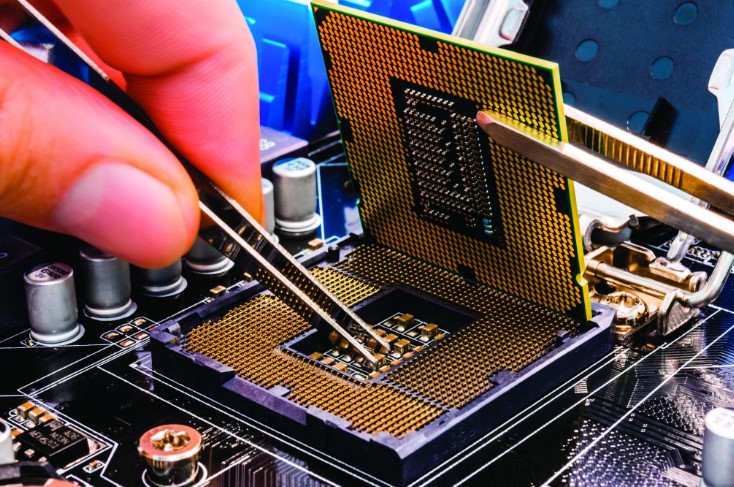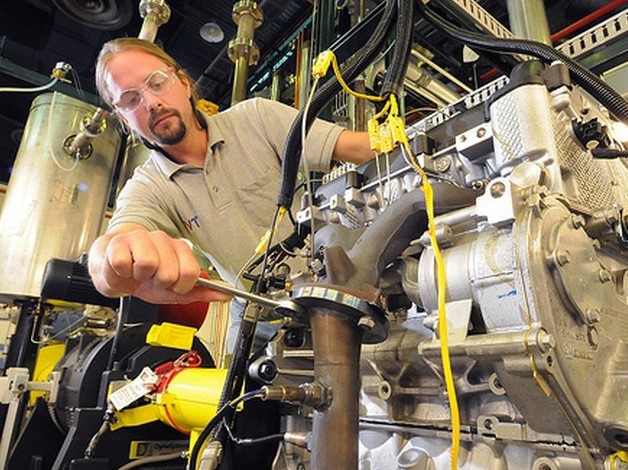
Automobile Engineering
Automobile engineering is a branch of engineering that deals with the design, development, manufacturing, and maintenance of automobiles. It encompasses various fields such as mechanical, electrical, electronic, and safety engineering to ensure the efficient and safe functioning of vehicles. In this article, we will explore the fascinating world of automobile engineering and its significance in shaping the modern automotive industry.
Introduction to Automobile Engineering
Automobile engineering is a dynamic field that combines engineering principles with automotive technology. It involves the application of mechanical, electrical, electronic, and safety engineering concepts to design, develop, and manufacture automobiles. Automobile engineers play a crucial role in the automotive industry by creating innovative and sustainable solutions for transportation.
Evolution of Automobile Engineering
The history of automobile engineering dates back to the late 19th century when the first internal combustion engine-powered vehicles were invented. Over the years, automobile engineering has witnessed remarkable advancements, leading to the development of faster, safer, and more efficient vehicles. From the Model T Ford to the modern electric cars, automobile engineering has come a long way in terms of technological innovations and performance enhancements.
Key Components of an Automobile
Automobiles consist of various components that work together to ensure proper functioning and performance. Some of the key components of an automobile include:
Engine
The engine is the heart of any vehicle, converting fuel into mechanical energy to propel the vehicle forward. Automobile engineers focus on optimizing engine performance, improving fuel efficiency, and reducing emissions through advanced combustion techniques and alternative fuel systems.
Transmission System
The transmission system allows the transfer of power from the engine to the wheels. It includes components such as gearboxes, clutches, and differentials. Automobile engineers design and develop transmission systems to provide smooth acceleration, efficient power delivery, and optimal gear ratios for various driving conditions.
Suspension System
The suspension system is responsible for providing a comfortable ride and maintaining vehicle stability. It consists of springs, shock absorbers, and other components that absorb shocks and vibrations from the road. Automobile engineers strive to design suspension systems that offer a balance between comfort, handling, and safety.
Braking System
The braking system plays a critical role in ensuring the safety of the vehicle and its occupants. Automobile engineers work on developing efficient braking systems that provide reliable stopping power, optimal braking distances, and effective control in different road conditions.
Electrical System
The electrical system of an automobile encompasses various components such as the battery, alternator, starter motor, and wiring. Automobile engineers focus on designing electrical systems that support advanced features like electronic fuel injection, power windows, infotainment systems, and advanced driver-assistance systems.
Importance of Automobile Engineering
Automobile engineering is of paramount importance in today’s world, primarily due to the significant role of automobiles in transportation and mobility. The field of automobile engineering contributes to the development of safe, reliable, and efficient vehicles that meet the evolving needs of society. It plays a crucial role in improving fuel efficiency, reducing emissions, enhancing safety features, and integrating advanced technologies into automobiles.
Different Fields within Automobile Engineering
Automobile engineering offers diverse career opportunities in various specialized fields. Some of the prominent fields within automobile engineering include:
Automotive Design
Automotive design involves the creation of aesthetically appealing and functional vehicle designs. Automobile engineers specializing in design focus on developing innovative exteriors and interiors, considering aspects such as ergonomics, aerodynamics, and aesthetics.
Automotive Manufacturing
Automotive manufacturing deals with the production and assembly of vehicles. It involves optimizing production processes, ensuring quality control, and implementing efficient manufacturing techniques. Automobile engineers in this field work on improving production efficiency, reducing costs, and implementing sustainable manufacturing practices.
Automotive Electronics
Automotive electronics is a rapidly growing field that focuses on the integration of electronic systems in vehicles. It involves designing and developing electronic components, control systems, and infotainment systems. Automobile engineers in this field contribute to the advancement of technologies like vehicle connectivity, advanced driver-assistance systems, and autonomous driving.
Automotive Materials
Automotive materials play a crucial role in determining the strength, durability, and weight of vehicles. Automobile engineers specializing in materials research and development work on finding new materials, composites, and alloys that offer improved performance, fuel efficiency, and sustainability.
Role of Computer-Aided Design (CAD) in Automobile Engineering
Computer-Aided Design (CAD) is a powerful tool used extensively in automobile engineering. CAD software allows engineers to create detailed 2D and 3D models of vehicle components, enabling virtual prototyping, simulation, and analysis. It helps in visualizing designs, identifying potential issues, and optimizing the performance and manufacturing process.
Latest Advancements in Automobile Engineering
Automobile engineering continues to evolve rapidly, driven by technological advancements and the need for sustainable transportation solutions. Some of the latest advancements in the field include:
Electric Vehicles
Electric vehicles (EVs) have gained significant attention in recent years due to their environmental benefits and potential to reduce dependence on fossil fuels. Automobile engineers are at the forefront of developing electric drivetrains, battery technologies, and charging infrastructure to support the widespread adoption of electric vehicles.
Autonomous Vehicles
Autonomous vehicles, also known as self-driving cars, are another area of focus in automobile engineering. Automobile engineers are working on developing advanced sensor systems, machine learning algorithms, and artificial intelligence to enable vehicles to navigate and operate autonomously. Autonomous vehicles have the potential to revolutionize transportation by enhancing safety, efficiency, and mobility.
Hybrid Vehicles
Hybrid vehicles combine internal combustion engines with electric motors, offering improved fuel efficiency and reduced emissions. Automobile engineers are continuously refining hybrid vehicle technologies to maximize their benefits and address the challenges associated with transitioning to electrified transportation.
Advanced Safety Systems
Safety is a primary concern in automobile engineering. Engineers are developing advanced safety systems such as adaptive cruise control, lane-keeping assist, automatic emergency braking, and pedestrian detection. These systems rely on sensors, cameras, and algorithms to enhance vehicle safety and mitigate the risk of accidents.
Challenges and Future of Automobile Engineering
Automobile engineering faces several challenges in the future, including the need to reduce greenhouse gas emissions, improve energy efficiency, and ensure sustainable transportation. Engineers will continue to focus on developing alternative fuel technologies, lightweight materials, and advanced manufacturing techniques to address these challenges. The future of automobile engineering holds exciting possibilities, such as fully autonomous vehicles, hydrogen-powered vehicles, and further integration of electric mobility.
Conclusion
Automobile engineering plays a pivotal role in shaping the automotive industry and driving technological advancements. It encompasses various fields, including mechanical, electrical, electronic, and safety engineering, to create innovative and sustainable solutions for transportation. With ongoing developments in electric and autonomous vehicles, automobile engineering is at the forefront of transforming the way we commute and reducing the environmental impact of transportation.
FAQs
Q1: What qualifications are required to become an automobile engineer?
To become an automobile engineer, one typically needs a bachelor’s degree in mechanical engineering or a related field. Some universities also offer specialized programs in automotive engineering. Additionally, acquiring practical experience through internships and hands-on projects can enhance career prospects in this field.
Q2: Are there job opportunities in the field of automobile engineering?
Yes, there are ample job opportunities in the field of automobile engineering. The automotive industry offers positions in research and development, design, manufacturing, testing, and maintenance of vehicles. With the increasing focus on electric and autonomous vehicles, the demand for skilled automobile engineers is expected to grow.
Q3: How does automobile engineering contribute to sustainability?
Automobile engineering contributes to sustainability by developing technologies that reduce emissions and improve fuel efficiency. This includes advancements in electric vehicles, hybrid vehicles, lightweight materials, and alternative fuel systems. By designing eco-friendly transportation solutions, automobile engineers aim to minimize the environmental impact of vehicles.
Q4: What are some notable challenges in automobile engineering?
Some notable challenges in automobile engineering include reducing emissions, improving energy efficiency, and ensuring road safety. Engineers face the task of developing innovative solutions that meet stringent emission standards, enhance vehicle performance, and integrate advanced safety systems to make transportation safer for everyone.
Q5: How is computer-aided design used in automobile engineering?
Computer-aided design (CAD) is extensively used in automobile engineering for creating detailed models of vehicle components. It allows engineers to visualize designs, perform simulations, and analyze the performance of various parts. CAD software enables efficient prototyping and accelerates the development process by identifying potential issues early on.
Partner Site : Computer Technology, Health And Wellness, Addiction Treatment, Home Maintenance, Home Wine, Healthcare Information, Car Accident, Food Recipes, E-Sports News, Floor Care Advice



